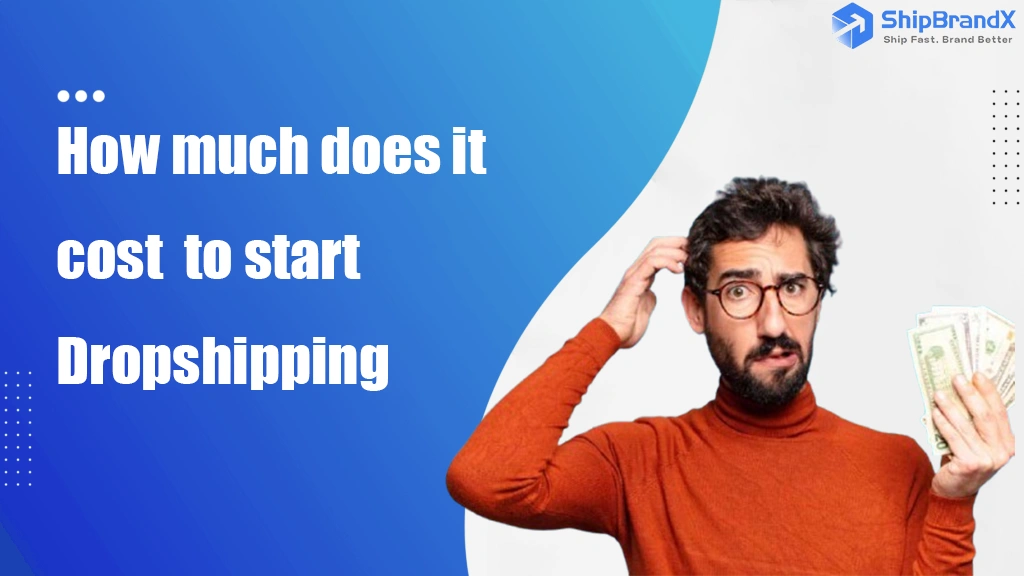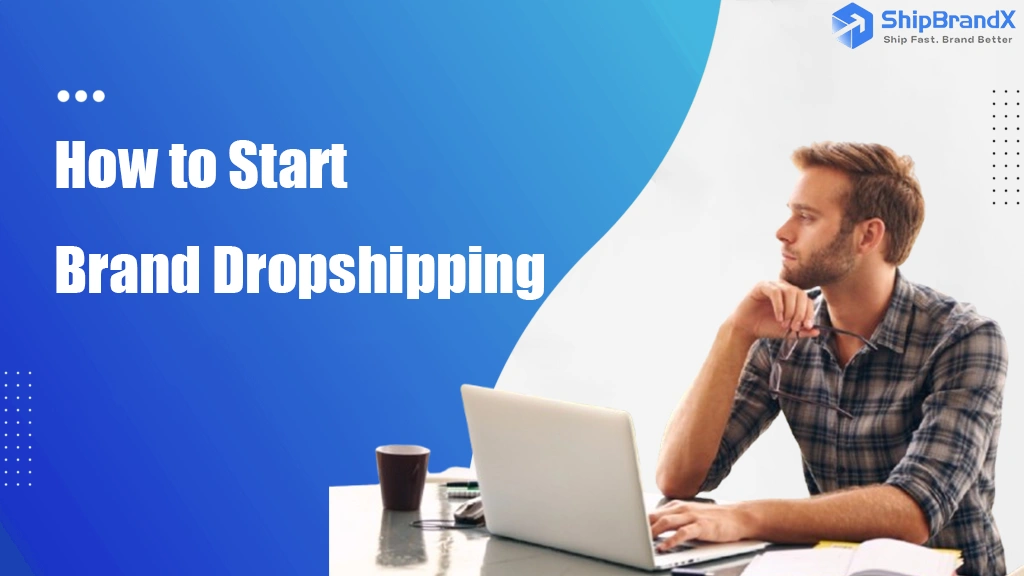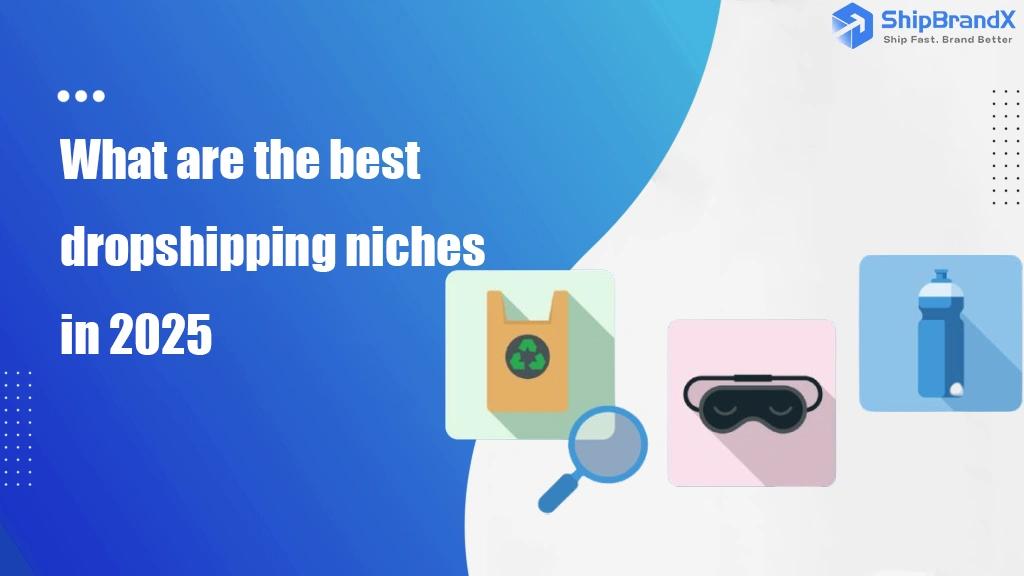Dropshipping vs. Private Label
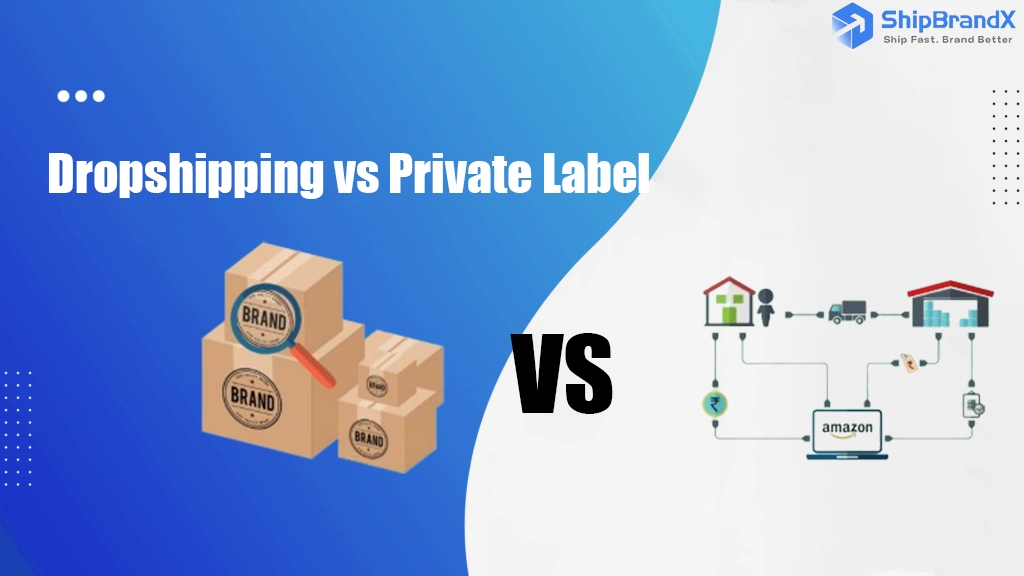
When deciding which type of eCommerce store to build, dropshipping and private label are often compared. While both models help you sell products without owning a factory or warehouse, they operate in very different ways. However, each model has its own unique pros and cons that every aspiring entrepreneur should consider before making a decision.
In short: if you’re new, we recommend starting with dropshipping before moving on to private label (or private label dropshipping!). Dropshipping allows you to find profitable products with less initial investment or experience, and once you understand the basics and how it works, it’s easy to enter the world of private labeling.
In this article, we’ll compare dropshipping and private labeling. Our goal is to help you understand the key differences between the two so you can choose the model that’s best for your business.
What is dropshipping
In the dropshipping business, a third-party supplier prepares, packs, and ships orders on behalf of your business. You can sell the supplier’s products through your online store, social media, or any sales channel of your choice.
The general process can be summarized as follows:
1. A customer visits your online store and places an order. For example, someone buys a phone case from your website.
2. You receive the order and forward it to the supplier. This is usually done automatically through your e-commerce platform.
3. The supplier prepares the product and ships it directly to your customer. The product is sent from the supplier’s warehouse (usually located in another country) to the customer’s home.
Your responsibilities are mainly to manage your online store, market your products, and provide customer service. You are the middleman between the customer and the supplier.
Advantage of Dropshipping
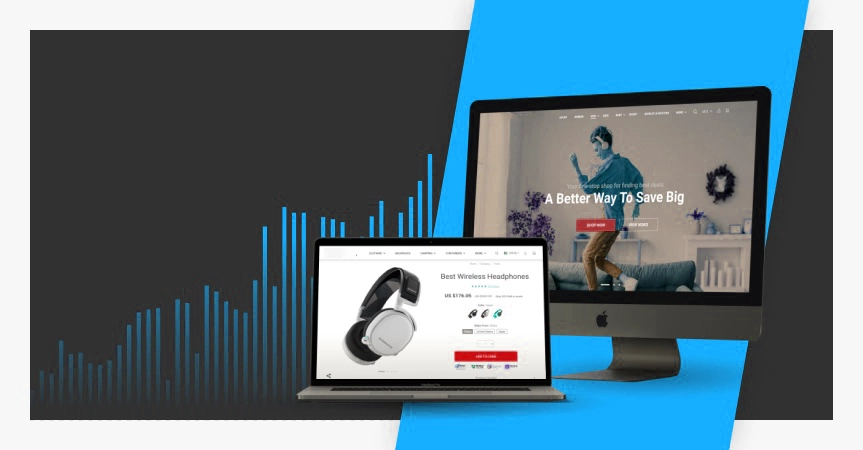
Easy to get started
Popular e-commerce platforms such as Shopify, WooCommerce, and Wix, Etsy make it easy to set up and run a dropshipping store. These platforms can be connected with applications such as DSers, Oberlo or AliDropship, CJdropshipping and of course ShipBrandX to help you find products and automatically send orders to suppliers.
Low Startup Costs
Since there is no need to purchase inventory upfront, compared to traditional retail or private label, you only pay after you sell the product, and your investment is mainly a domain name, web hosting, and some basic marketing work.
The supplier takes care of all logistics. You don’t need physical space to store the products, and you don’t need to worry about packaging and shipping. You can start a dropshipping business anywhere as long as you have a computer with an internet connection. You can easily test and sell a wide variety of products to see what your customers like best.
Private Label
Private label products are produced according to your specific requirements as a seller.
Private label is a business model where you sell products made by manufacturers, but use your own brand. Instead of reselling the products directly, you work with suppliers to customize the products, adding your logo, brand colors, and packaging. Even if the final product is made by someone else, it looks like you made it yourself.
Advantages of Private Label
Higher Profit Margins
Because your products are unique, you can set your own prices (or set prices based on customer wishes). You can increase the perceived value of your products by providing excellent customer service, reliable product quality, and fast delivery. You sell unique products with a brand, so you can usually charge higher prices. This can result in higher profits than selling generic products.
Better control over your brand
You decide how your products look, are packaged, and marketed. This helps you stand out from the competition and build a strong brand image. One of the main advantages of running a private label business is the ability to have more control over product customization and specifications. You can incorporate your own brand logo into your products, customize the shape, size, labeling, etc.
You can create unique products that other e-commerce platforms will not offer the same products, thus reducing competition.
Customer loyalty
When customers love your brand and packaging, they are more likely to come back again. This gives you a better chance of building long-term business.
Note: When dropshipping, you can also create a unique brand and obtain trademark protection, especially if you use branded dropshipping or white label dropshipping. In addition, if you print original designs on your products, these designs may be protected by copyright.
Both direct sales and private label business models involve outsourcing the manufacturing process to third-party suppliers. The main difference is that private label brands require managing product inventory and shipping, while dropshipping does not.
In this article, we compare dropshipping and private labeling, two common e-commerce platforms. Dropshipping is great for newbies, with low startup costs, low risk, and the ability to quickly test the market. Private labeling offers greater control, a better brand image, and higher profit potential, but also requires a greater investment of time, money, and effort.
Dropshipping and private labeling each have their pros and cons. Dropshipping is great for newbies because it has low startup costs and low risk. It’s also a great way to test products and learn about e-commerce. Private labeling, on the other hand, can enhance branding, increase profit margins, and provide greater control over product quality, but requires significant investment and effective inventory management.
For many entrepreneurs, starting with dropshipping and then moving to private labeling once you find a product that sells well is a good option. Ultimately, the right model depends on your budget, risk tolerance, and long-term business goals.
Private label offers more control over product quality, branding, and pricing. Dropshipping prices are usually set by the supplier, with limited quality control.
Risks of dropshipping include supplier errors, long delivery times, and lower profit margins due to competition.
Private label requires a higher initial investment, and can be riskier if your product doesn’t sell as well as you hoped. You may also need to manage inventory and unsold stock.
Dropshipping has lower startup costs because you don’t have to buy inventory up front. Private label requires more investment in product development, branding, and bulk purchasing.
With dropshipping, the supplier manages the inventory. Private label typically requires you to stock your own inventory, though some manufacturers offer fulfillment services.
Building a strong brand through dropshipping is challenging because products are often monolithic and multiple sellers may offer the same item. Private labeling can increase brand awareness and customer loyalty.
Dropshipping offers little customization. Private labeling, on the other hand, allows you to modify the design, packaging, and functionality of the product to fit your brand image.
Contact us now to speak with an expert and receive a free quote
We offer 7/24 service. Respond quickly to your needs and ensure that we provide you with professional solutions and competitive prices.
Urgent?
Call us +86 186-0657-1369
WhatsAPP +86 186-0657-1369

